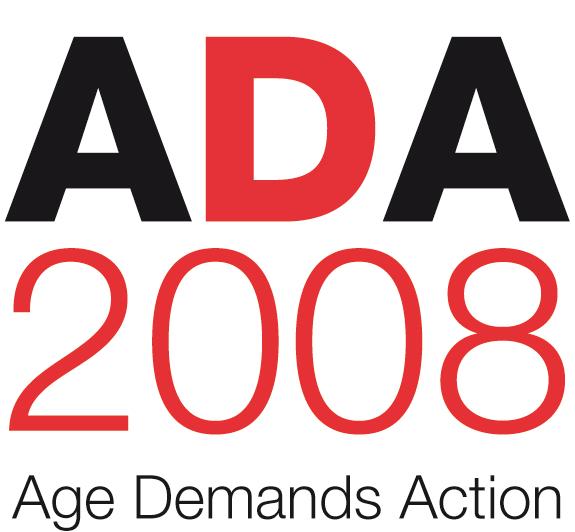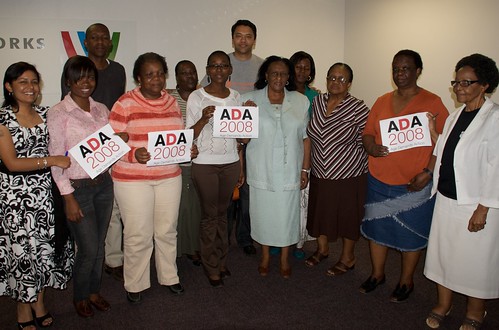Which group is most affected by today's digital divide? The poor? Those who live in rural communities? The so-called Global South? Women?
To a greater or lesser degree, they have all tended to benefit less from the advantages and opportunities afforded by the internet than, say, young men living in urban North America, Western Europe, and East Asia. But there is another demographic whose online exclusion trumps all others: the aged.
According to a study by Jonathan Gardner and Andrew Oswald of the University of Warwick, “almost three in five of the 18 to 24 age group use the internet compared with less than one in 20 of the over 65's (despite the alternative stereotype of the e-granny in the library). Among those who do use the internet, the very youngest also spend more time logged on – an average of 4.1 hours, which is twice as long on average as pensioners do. The digital divide between pensioners and the rest is, in fact, a gulf. These differences persist even when other factors are taken into account.”
Similarly, according to a 2004 study by the Pew Internet & American Life Project, only 22% of Americans age 65 and older go online.

Even as more “wired seniors” are taking to the internet in fully developed countries, this trend does not stay true in the developing world where there are less computer training programs for retirees. Furthermore, while young internet users – armed with weblogs, video cameras, and audio editing software – are shaping the internet as a commons for sharing and advocacy, older users are much more likely to approach the internet as consumers rather than consumer-creators.
Of course, in much of the world elders have been traditionally given respect and reverence for their accumulated wisdom and historical perspective. For millenia elders held the role of transmitting knowledge, history, and culture through their oral and written storytelling. However, storytelling today requires more than just a compelling narrative; storytellers must also learn the new tools of literacy: blogs, digital photography, and online video.
The United Nations Recognizes the Needs and Achievements of Elders
The good news is that just as our parents tended to live longer lives than their parents, we will also live longer lives than our own. In fact, average life expectancy has increased worldwide by twenty years since 1950 and is expected to increase another 10 years by 2050. This “revolution in longevity” also presents grave challenges as older persons tend to require costly health care and are less able to compete with young adults for jobs which require technical skills and/or manual labor. Today 600 million people are over the age of 60, and by 2025 this figure is expected to double. Over 100 million elders today are living on less than US$1 a day and their role as family caretakers and custodians of culture is being undermined and undervalued.
 In 2002 at the Madrid International Plan of Action on Ageing more than 160 governments committed to include ageing in all social and economic development policies, and to halve old-age poverty by 2015, in line with Millennium Development Goals. A five year review of the plan of action in February noted some advances such as increased pensions in the Caribbean and specialized geriatric care centers in Western Asia, but shortcomings and lack of engagement by most member countries are repeated throughout the report.
In 2002 at the Madrid International Plan of Action on Ageing more than 160 governments committed to include ageing in all social and economic development policies, and to halve old-age poverty by 2015, in line with Millennium Development Goals. A five year review of the plan of action in February noted some advances such as increased pensions in the Caribbean and specialized geriatric care centers in Western Asia, but shortcomings and lack of engagement by most member countries are repeated throughout the report.
HelpAge International, a U.K.-based NGO which advocates the rights of older persons, began the Age Demands Action campaign to commemorate the United Nationals Day of Older People (October 1) by promoting the Madrid International Plan of Action on Ageing and demanding recognition and support for the vital contribution of elders to society.
This year committees from 37 different countries will all take part in the Age Demands Action campaign, including the Muthande Society for the Aged based in Durban, South Africa. The Muthande Society, founded in 1983, cares for thousands of elder residents throughout the Durban area, with a special emphasis on older people living with or affected by HIV/AIDS.
This year, rather than sending out a standard press release to local newspapers and community leaders, HelpAge International asked Rising Voices to train members of the Muthande Society for the Aged how to use blogs to give a personal and intimate look into what it is like to work with elders and advocate for their rights. Here is a brief video of the training workshop:
You can read and subscribe to the five blogs created by Muthande Society employees:
- http://durbanphindi.wordpress.com/
- http://muthande.wordpress.com/
- http://lizmkame.wordpress.com/
- http://hthembekile.wordpress.com/
- http://abadala.wordpress.com/
The Muthande Blog laments the lack of funding and recognition given to NGO's despite the enormous amount of important work that they do. The blog titled Aged is worried about the myth that raping elders and toddlers can cure AIDS. Phindimdlalose, writing a more personal post, shares her family's dream of owning a larger house. Liz Mkame, one of Muthande's co-founders, reminds us that “The younger people can learn a lot from the aged especially about culture and UBUNTU.” Thembekile Hlub, another of Muthande's co-founders, gives us an introduction to the organization and its activities.
New bloggers from the Muthande Society for the Aged.
What can you do?
You can help support the rights of elders today.
- Read the goals of the Age Demands Action campaign.
- Sign HelpAge's global petition and forward it to friends.
- Watch the Age Demands Action film and forward it on.
- Write a blog post about the United Nations Day of Older People and the Age Demands Action campaign or post a link to the site from your Facebook page.
- Train elders in your own community how to use the social web to make their voices heard.





6 comments
this is so wonderful i remember when you reminded me how important it was to include elders to this bright new world. let’s all support them the best way we know : post hundred of comments
this piece of article is really wonderful, it made me to realise how important it is to expose our elders to new changes.
I’m smiling as I read this, thinking of my grandmother who, while in her late 70’s, is learning how to use the internet. Her sweet emails always begin with a warning, “Don’t judge me on the spelling, these keys are too small!” :)
The new bloggers from the Muthande Society are a testament to the fact that one is never too old to learn something new, provided the will is there. A real inspiration tale, and one I can’t wait to keep hearing more about. Congratulations to all.
Thank you man you are great
walk and i will back with you
:)